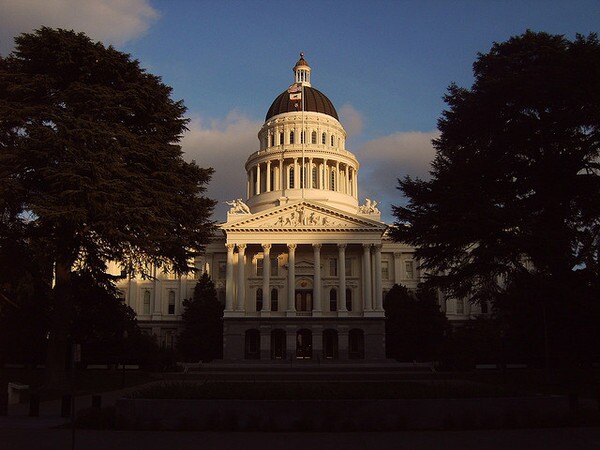Report: California Needs A Department Of Energy

California's State Capitol | Photo: William Van Bergen/Flickr/Creative Commons License
As California struggles to meet its challenge to shift to renewable energy, an independent state oversight agency has released a report lambasting the state's renewable energy policy as incoherent and potentially costly.
The Little Hoover Commission's report, Rewiring California: Integrating Agendas for Energy Reform, states that California's energy policy is being set by a far-too-diverse group of agencies. It also charges that the bungled energy market deregulation of the 1990s leaves the system open to gaming by corporations. The Commission calls for greater transparency in discussions of the cost of renewable energy, saying that California's ratepayers should know ahead of time just what the impact on their wallets will be of the state's meeting its Renewable Portfolio Standard requirements -- as well as changes in the cost of living in California due to climate change of those standards aren't met:
Although some light will be shed on renewable contract costs in the coming years, no one has yet attempted to assess, in the aggregate, the impact that all the recent laws and regulations will have on electricity costs. The authority to guide and regulate California's energy transformation is diffused across several organizations. In places, their authorities overlap, yet gaps in authority exist as well. The members of the boards and commissions who implement these policies are appointed by the Governor, putting the ultimate responsibility for outcomes in the Governor's hands. Californians have a right to know what they can expect to pay for electricity as policies affecting electricity are implemented. The Governor must make this a priority or risk ratepayer revolt and the potential loss of public support for California's environmental policy goals.
The report also suggests that California needs a Department of Energy, with a secretary reporting directly to the Governor, to oversee and coordinate all state programs and policies currently managed by a byzantine network of agencies from the Energy Commission and Public Utilities Commission to the state's Independent System Operator, Air Resources Board, Water Resources Control Board, CalEPA, and other agencies. Such a reorganization was proposed in 2005 by Governor Schwarzenegger, but it stalled in the administrative process:
Importantly, the structure proposed in 2005 would have filled a leadership void. Currently, the Governor does not have a senior energy representative with the authority and resources to guide policy, develop strategy and improve implementation. The essential importance of energy to the economy, environment and the safety and stability of California communities suggests the need for one official who is accountable and responsible for guiding executive decisions.
The report also calls for a moratorium on new overarching state energy laws until either the above restructuring can happen, or existing agencies are able to come up to speed on implementing those regulations that have already been enacted.
The Little Hoover Commission was formed by the Legislature in 1962 to assist the Governor and the Legislature to promote ef?ciency in state departments and agencies. It consists of five Governor-appointed citizens, four citizens appointed by the legislature, and two members each of the Assembly and State Senate.
ReWire is dedicated to covering renewable energy in California. Keep in touch by liking us on Facebook, and help shape our editorial direction by taking this quick survey here.